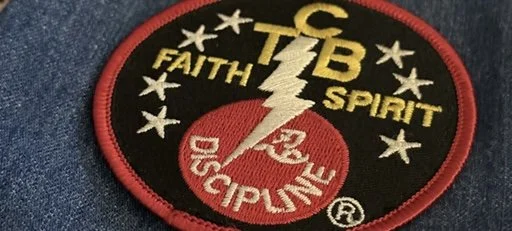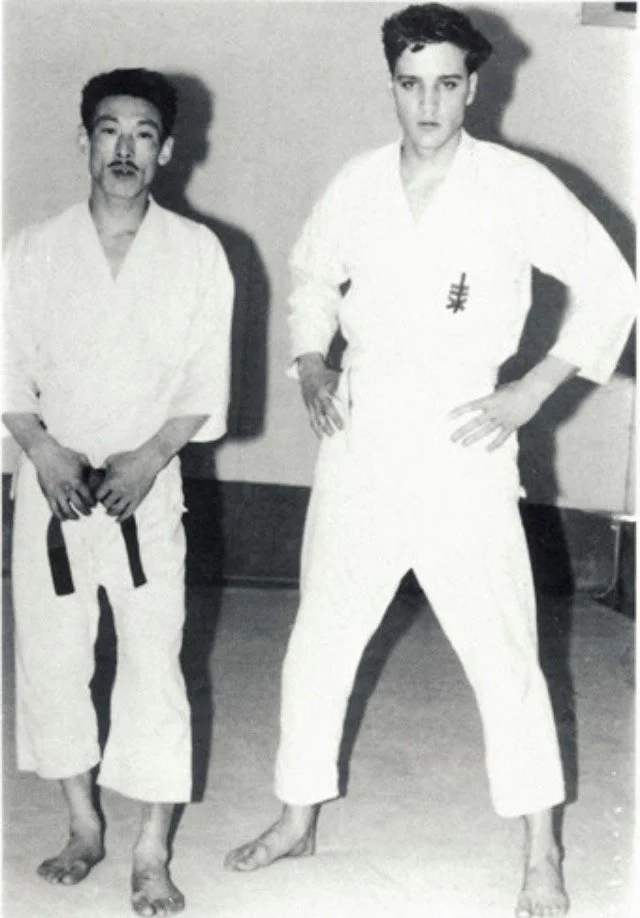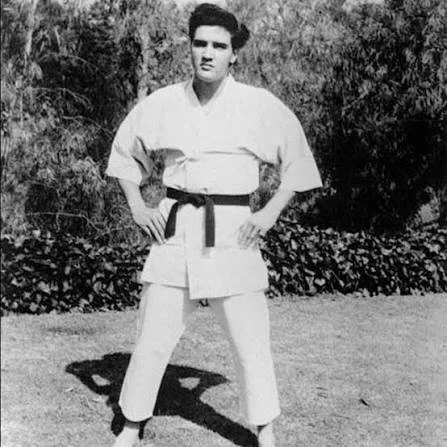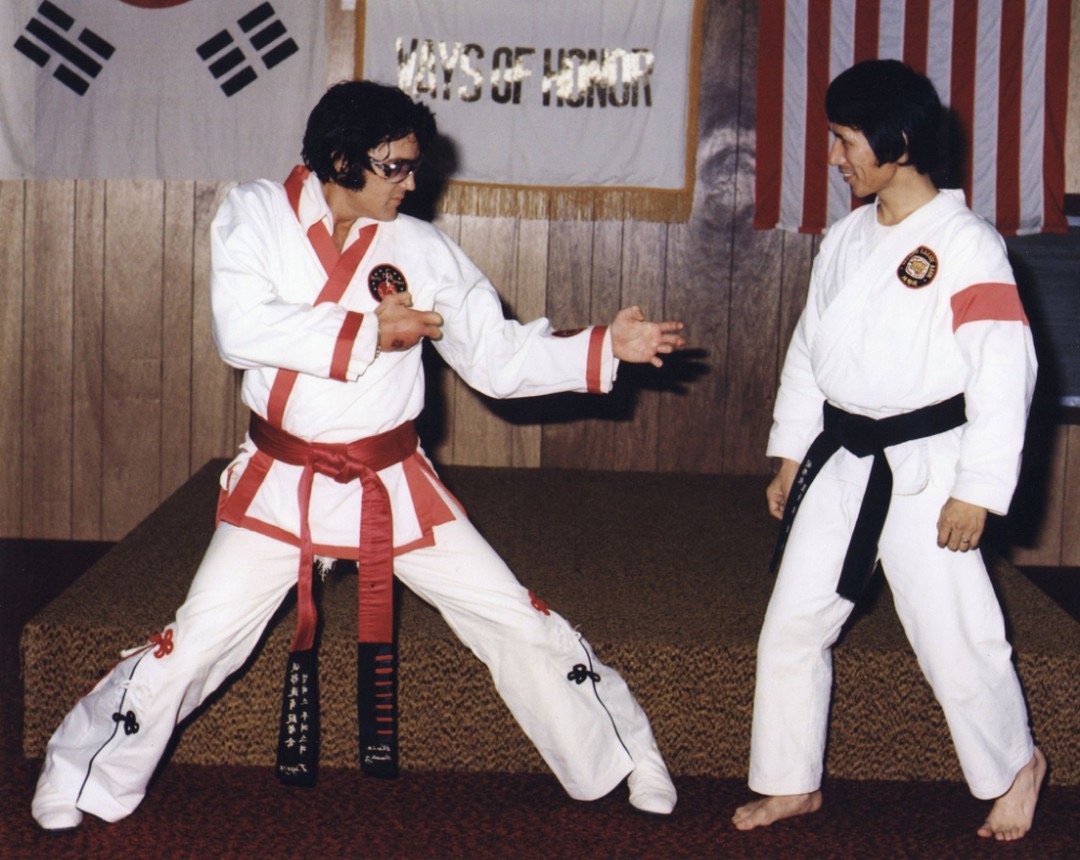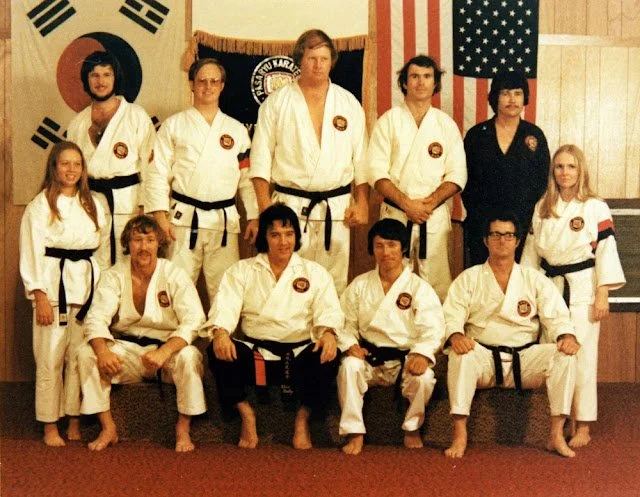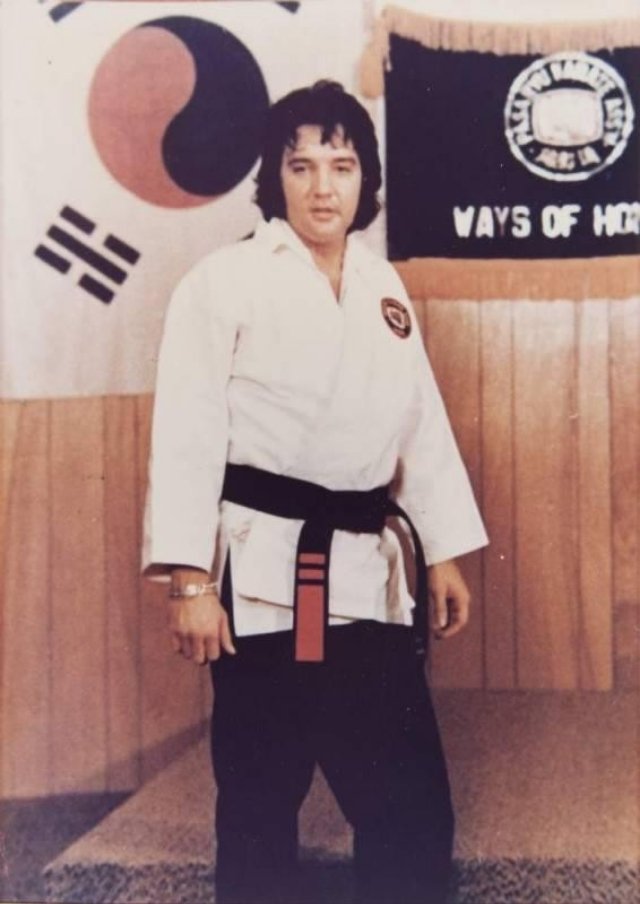TCB ⚡️ – Taking Care of Business: The Warrior Mindset Elvis Left Behind
By Roy Rolstad
Many people have asked me what TCB means, because they’ve seen me write it in comment sections whenever someone does something I find genuinely good or inspiring. For me, TCB is a quick “well done.” It’s a mindset, a symbol, and a reminder of how we choose to act, in training and in life. And behind those three letters lies a deeper story that connects directly to my own childhood.
I grew up in a home where Elvis was everywhere. Both of my parents were Elvis fans. His music was often played, his voice filled every room, and the lightning-bolt symbol was almost part of our family identity. When I was a young boy, before I even started school, I attended an Elvis concert in Miami together with my mother. She was working as a cabin steward on a cruise ship at the time, and whenever the ship docked, she took me along to whatever adventures she could find. One of those adventures was seeing Elvis live in Miami. I didn’t understand much of what I was watching at the time. And I can’t remember it, other than the story that my mom keeps telling me about it.
Years later, I learned that motto: TCB ⚡️ Taking Care of Business. And the more I studied martial arts, the more I realized how deeply connected TCB is to the values we train for, and how strongly Elvis himself was shaped by martial arts.
A Soldier, a Dreamer, and a Martial Artist
Elvis first encountered martial arts during his military service in Germany in 1958. While stationed there, he actively sought out training and eventually met Jürgen Seydel, one of Europe’s earliest karate pioneers. What began as curiosity quickly became a profound part of his life.
While other soldiers focused on nightlife or downtime, Elvis trained daily. Quietly. Seriously. With genuine commitment. He discovered discipline, focus, and an inner balance that grounded him through the chaos of fame that would soon follow.
A Korean Master in Memphis
Back in the United States, Elvis continued his training and eventually came under the guidance of Master Kang Rhee, a respected Korean Taekwon-Do instructor. Under Master Rhee, Elvis refined his techniques and embraced a more traditional understanding of martial arts.
He didn’t train for image. He didn’t train for publicity. He trained because he loved it. People who trained with him often said the same thing: he showed up with humility, respect, and real curiosity. He wanted to understand movement, discipline, philosophy, and he took it seriously.
A Cultural Bridge Between East and West
Long before martial arts became global through films and tournaments, Elvis helped introduce them to Western audiences.
He supported instructors financially.
He brought martial artists on tour.
He showcased martial-arts choreography in concerts and movies.
He talked openly about the values he learned from training.
For millions of people, Elvis was the first person who made them look twice at a stance, a kick, or a board break. Without knowing it, he helped build a cultural bridge, connecting Eastern martial traditions with Western popular culture.
The Lightning Bolt and the Code Behind It
The lightning-bolt symbol ⚡️ was used as decoration on jewelry and aircraft. For Elvis and his inner circle, TCB meant:
Move with purpose
Act decisively
Protect your people
Do what needs to be done, without excuses
Spiritually, it aligns closely with the core values of Taekwon Do: courtesy, integrity, perseverance, self-control, and indomitable spirit.
TCB is not aggression. It is responsibility. Responsibility to act. Responsibility to grow. Responsibility to live with intention.
Why TCB Belongs in ITF Radix
ITF Radix is grounded in the idea that movement reflects mindset, that patterns contain principles we can apply both in combat and in life.
This is exactly what TCB represents: clarity of intent, simplicity of action, discipline without drama, and purpose without hesitation.
In ITF Radix, we talk about purposeful movement. TCB is purposeful living.
One mindset. One symbol. A reminder to take care of business, in technique, in self-development, and in daily discipline.
A Legacy We Can Carry Forward
For me, TCB is Elvis’ motto. It is part of my childhood, part of my family, part of my friendships, and now part of my own martial arts journey.
Especially with my good friend Henrik Hunstad, one of the most hardcore Elvis fans and Martial Artist I know!
Elvis Presley used martial arts to shape his identity, stay grounded, and develop a personal code. He turned that into a simple symbol with deep meaning ⚡️.
For us as martial artists, the lesson is clear:
Act with intention.
Train with integrity.
Live with purpose.
TCB ⚡️every single day!

